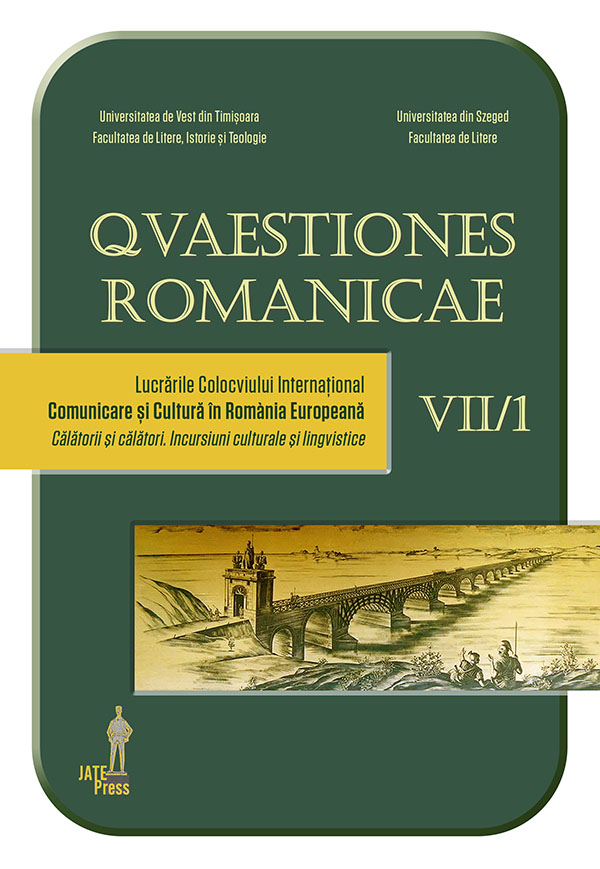Homo viator. Schiță de istorie a unui concept. Antichitatea
Abstract: (Homo viator. Sketching the history of a concept. Antiquity) The paideutical vocabulary of the ancient and patristic Latin language and culture does not cease to amaze us up to this very day, through the pithiness with which it establishes concepts that transcend space and time, making them seem forever topical: carpe diem, mens sana in corpore sano, est modus in rebus, aurea mediocritas etc. Ever so fascinating for the Latinist is also the history of Latin words, their appearance, semantical evolution and Romance destiny. The present papper intents to be a linguistic incursion which serve as a contribution to creating an open lexicological file of the word viator, presenting etymological, onomasiological, semantical, stylistic, word-formation, Latin language history points of reference, based on the occurrences of this lexeme in literary texts, as well as in the Latin inscriptions.
Keywords: Latin vocabulary, viator, etymology, stylistics, word history.
Rezumat: Vocația paideutică a limbii și culturii latine, antice și patristice, nu contenește să ne frapeze până azi prin pregnanța cu care fixează concepte ce transcend spațiul și timpul, făcându-le să pară mereu actuale: carpe diem, mens sana in corpore sano, est modus in rebus, aurea mediocritas etc. Nu mai puțin fascinantă este pentru latinist istoria cuvintelor de origine latină, apariția lor, evoluția lor semantică, destinul lor romanic. Lucrarea se dorește o incursiune lingvistică ce contribuie la crearea unei fișe lexicologice deschise a cuvântului viator, prezentând repere etimologice, onomasiologice, semantice, stilistice, de formare a cuvintelor, de istorie a limbii latine etc., pe baza ocurențelor acestui lexem în textele literare, dar și în inscripțiile latinești.
Cuvinte-cheie: vocabular latin, viator, etimologie, stilistica, istoria cuvintelor.
